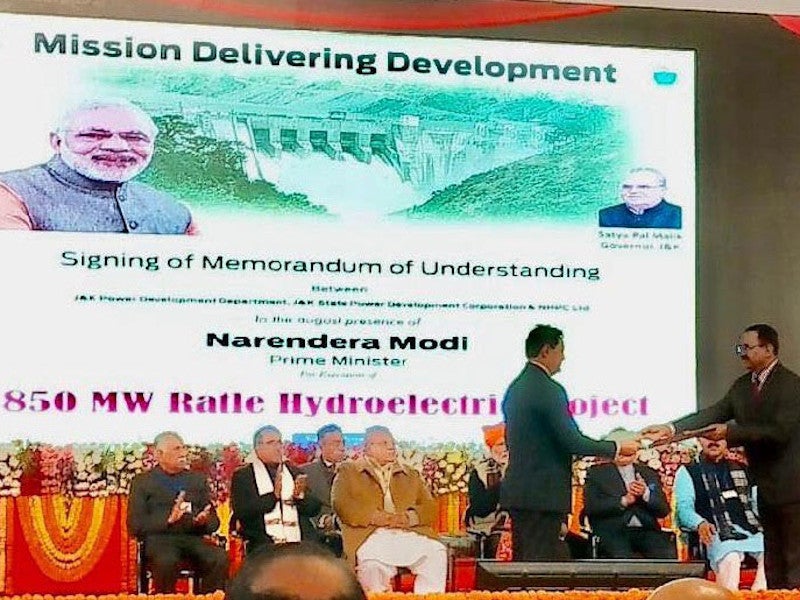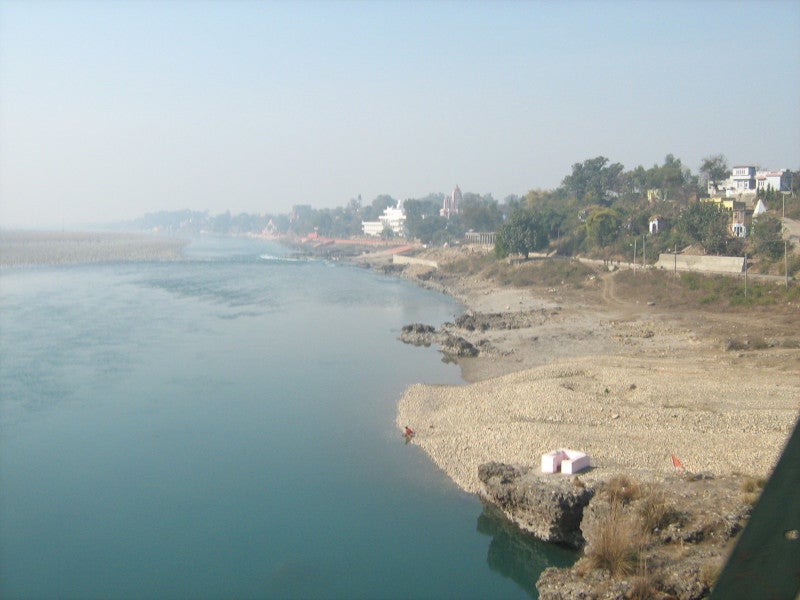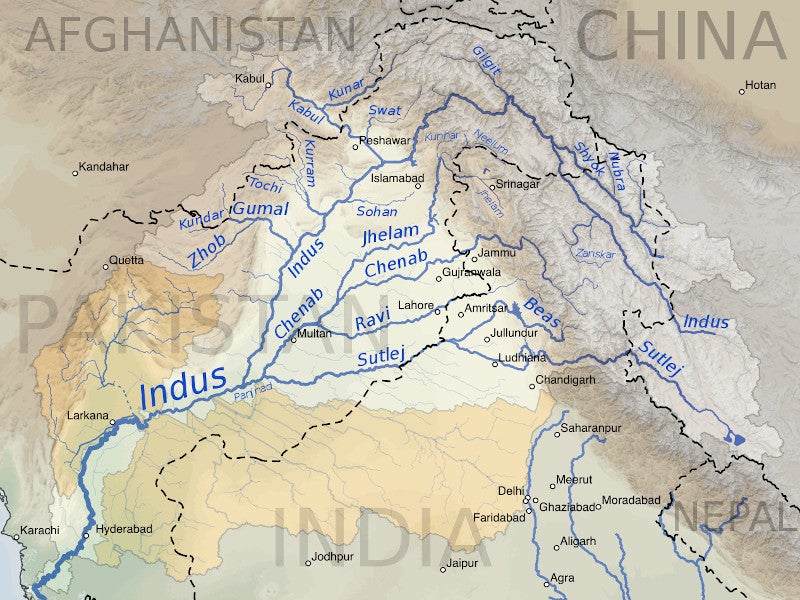The Ratle hydroelectric power project is an 850MW project being revived on the Chenab River in the Kishtwar district of India-administered Jammu and Kashmir (J&K).
Although the preliminary works such as the construction of access roads and diversion tunnels were started in 2013, the project was stalled due to various issues including the disagreement between the then government of Jammu and Kashmir and the project contractor GVK.
After a hiatus of more than six years, the run-of-the-river hydropower project is now planned to be developed through a joint venture partnership between the Jammu & Kashmir State Power Development Corporation (JKSPDC) and India’s state-owned National Hydroelectric Power Corporation (NHPC).
The Public Investment Board (PIB) of the Ministry of Finance, Government of India, recommended the project to be developed through a joint venture company of NHPC and JKSPDC in September 2020.
Financing
The PIB also recommended an investment approval of £556.4m (Rs52.82bn) for the Ratle hydropower project in September 2020.
It includes approximately £85.13m (Rs8.08bn) of equity contribution by NHPC and approximately £81.74m (Rs7.76bn) of equity infusion by JKPDC which will be provided by the Government of India.
Ratle hydropower project background
The Ratle hydroelectric power project was originally planned to be developed by GVK Power on a build, operate, own, and transfer (BOOT) basis under a contract awarded by the Jammu & Kashmir State Power Development Corporation (JKSPDC) in May 2010.
A special purpose vehicle (SPV) named GVK Ratle Hydro Electric Power Project was formed to develop the project with an estimated investment of approximately £664m ($1bn).
The preparatory construction works at the project site were started in 2013 with the commissioning of the facility targeted for 2018. GVK would have operated the facility for a period of 35 years before transferring it to the Government of Jammu and Kashmir.
However, the project works were suspended due to the issues between the J&K Government and GVK in 2014. The Ratle project, along with the Kishenganga hydroelectric project, also witnessed opposition from Pakistan, which alleges that both these projects violate the Indus Water Treaty that was signed between the two neighboring countries in 1960.
The J&K Government directed JKSPDC to take over the project and implement it in a joint venture partnership with NHPC after the power purchase agreement (PPA) for the project was terminated in February 2017.
NHPC and JKSPDC signed a memorandum of understanding (MoU) for jointly implementing the project in January 2019.
Project location and site details
The Ratle hydroelectric project is located downstream of the Dulhasti project and upstream of the Baghlihar project, on the Chenab River, near the Drabshala village, in the Kishtwar district of J&K, India.
The project site lies approximately 210km away from the Jammu Airport and approximately 140km away from the Udhampur railway station.
Ratle hydroelectric plant make-up
The Ratle hydroelectric power station comprises a 133m-tall and 194.8m-long concrete gravity dam, a diversion dam, and an underground powerhouse on the right bank of the river.
The underground powerhouse measuring 168mx24.5mx49m will house four 205MW Francis turbine-generating units and a 30MW auxiliary turbine-generating unit.
The powerhouse will be connected through four 6.6m-diameter main pressure shafts and an auxiliary shaft with the water intake structures located approximately 40m upstream of the dam axis. The rated head for the hydroelectric power generation at the site will be approximately 97m.
The water from the powerhouse will be released through four main tailrace tunnels and one auxiliary tailrace tunnel.
The transformer cavern for the hydropower plant will measure 142mx14.3mx22m.The 850MW facility is expected to generate up to 3136.77GWh of electricity annually.
Previously awarded contracts
GVK Developmental Projects (GVKDPPL) was awarded the engineering, procurement, and construction (EPC) contract for the Ratle hydropower project.
Alstom was awarded a contract worth over £83.59m (€100m) by GVK Power and Infrastructure for the supply of four 205MW Francis turbines and one 30MW Francis turbine for the project in October 2013.
L&T Construction was awarded a contract worth £252m (Rs19.85bn) for the main construction works of the project in November 2012.
Switzerland-based AF Consulting was engaged during the initial project development phase, while AECS Engineering and Geotechnical Services was selected to conduct rock mechanics tests for the project.





